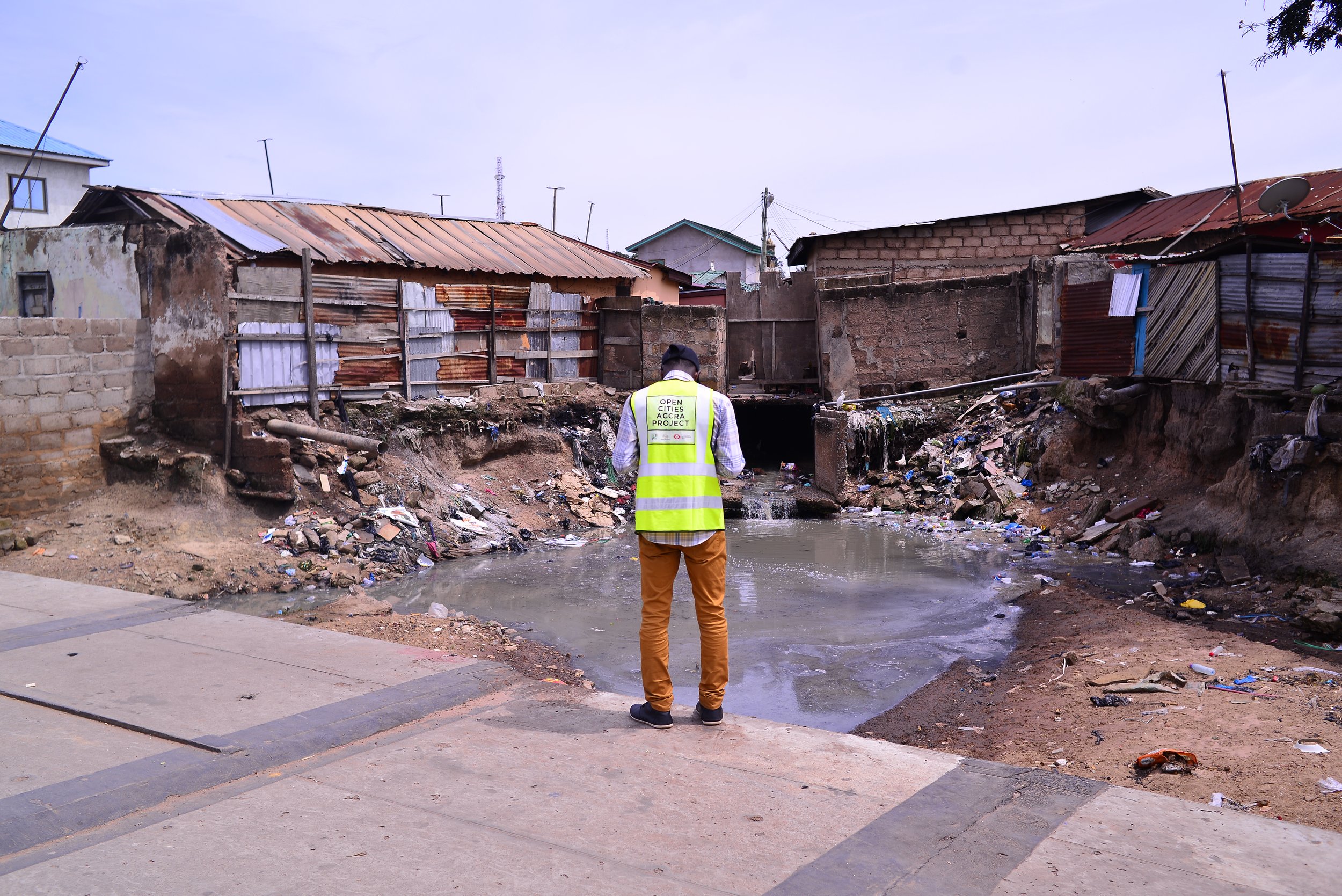
ACCRA - CHALLENGES & OPPORTUNITIES OF AN INFORMAL CITY
1.8 Million Housing Unit Deficit
An Affordability Crisis
With little legacy infrastructure, Accra is poised to play a leading role in next generation urban development. Legacy models of modern master planning— in particular western models— have not been successfully deployed nor integrated within most African cities and Accra is no exception.
The reasons are numerous, however the most revealing is the cost to finance and build these proposals.
Ghana’s housing deficit hit 1.8 million units in 2022, to resolve this shortage over 16,500 houses will have to be built every month for the next ten years. The average cost of a house in Accra is GH₵315,000 and rising. Over 9 million people earn less than GH₵2000 per year. Over 8 million Ghanaians — about twice the population of Accra — are homeless. This crisis is exacerbated by the lack of an established and accessible personal banking, credit and mortgage market.
43% of residents live in informal housing
Inflationary pressures on construction materials and labor have made new construction increasingly expensive. These increased costs are propped up by global capital, with ever ascending expectations for profit margins. The massive gaps left by this type of development are filled by unplanned communities — resulting in congested and poor living conditions lacking basic infrastructures such as water, waste and power.
Second highest
residential construction costs in Africa
These costs are also borne out in the commercial market, stifling the ability of local entrepreneurs to grow sustainable businesses. Prime commercial rents in Accra are on par with rents in London, locking out all but international businesses from occupying quality commercial spaces.


